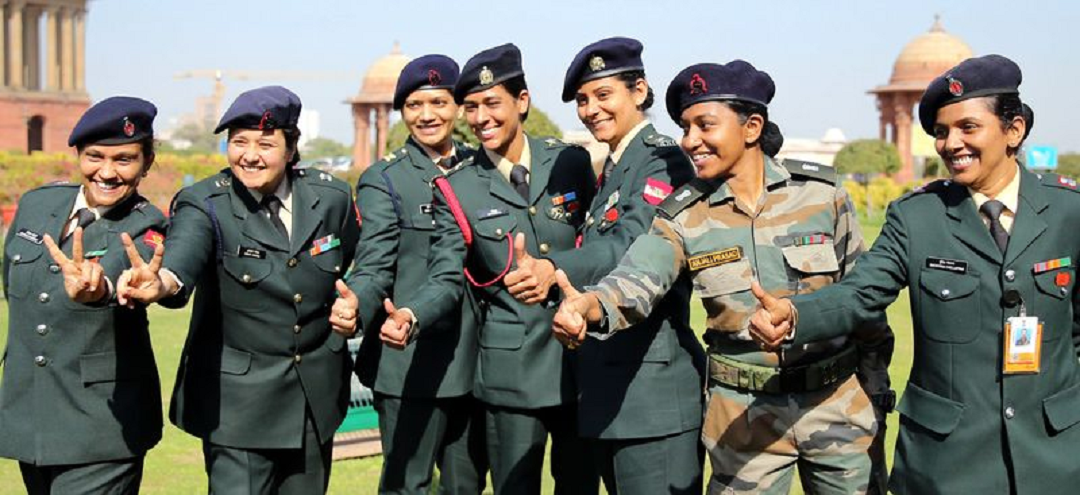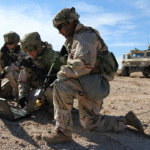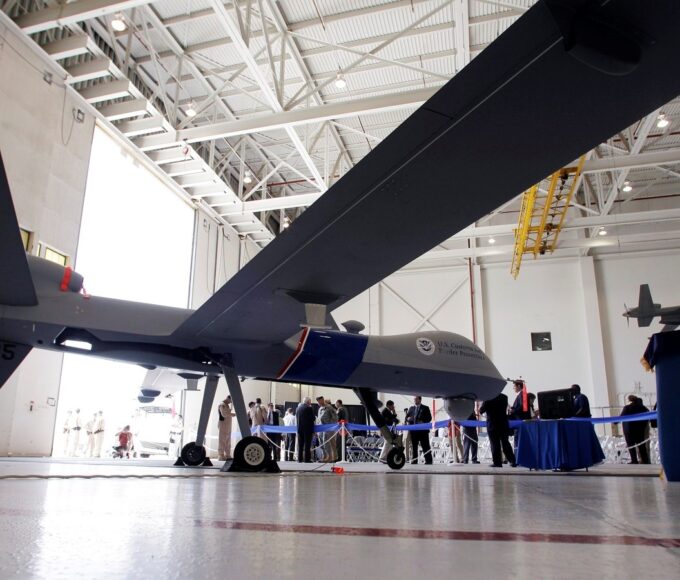
WOMEN IN DEFENSE INDUSTRIES: INNOVATORS, ENGINEERS, AND LEADERS
The global defense sector, long viewed as a male-dominated arena, is undergoing a profound transformation as women rise to influential roles in innovation, engineering, and executive leadership. From tech startups to major defence contractors, female experts are now driving breakthroughs in cyber defence, autonomous systems, and sustainable munitions. A 2024 Deloitte study estimates that women represent 24 percent of the global aerospace and defense workforce up from 16 percent in 2015 with increases in female leadership linked to higher patent output and fewer project overruns. Among the most influential figures shaping this shift are Hedy Lamarr, Gwynne Shotwell, Kathy Warden, Fatima Ba, and Colonel Jaye Cooper, whose contributions have redefined defence technology and strategy.
Hedy Lamarr, the Austrian-American actress turned inventor, laid the groundwork for secure wartime communications during World War II. In 1941, after witnessing the devastation caused by Nazi U-boat attacks, she co-developed a frequency-hopping spread-spectrum system with composer George Antheil. Their invention, filed under U.S. Patent 2,292,387, was intended to make Allied torpedoes immune to enemy jamming. Although initially ignored by naval officials, the technology later proved foundational to Wi-Fi, GPS, and Bluetooth. When the design was declassified in the 1980s, Lamarr finally gained recognition, earning induction into the National Inventors Hall of Fame in 2014. Her story now fuels STEM programmes encouraging girls to pursue careers in defence and advanced engineering.
Related Article: GLOBAL SECURITY WATCH – LESSONS FROM NATO FOR AFRICAN REGIONAL DEFENCE COOPERATION
Gwynne Shotwell, president and COO of SpaceX, has overseen the commercialisation of reusable rocketry that supports U.S. military satellite deployments. She joined the company in 2002 as its 11th employee and played a pivotal role in securing the $1.6 billion NASA contract in 2008 that kept the firm afloat. Under her leadership, Falcon 9 rockets achieved a 98 percent recovery rate by 2025, reducing launch costs by an estimated 30 percent while enabling rapid deployment of defence payloads. With a mechanical engineering background from Northwestern University, Shotwell has earned a reputation for data-driven leadership and has championed career pathways for women across Pentagon supplier networks.
Kathy Warden, CEO of Northrop Grumman since 2019, leads one of the world’s largest defence companies during an era defined by autonomous systems and digital warfare. Beginning her career as a systems engineer on the B-2 Stealth Bomber, she later championed the B-21 Raider programme, introducing AI-driven threat simulation that shortened testing cycles by nearly 40 percent. Her 2023 pledge to achieve net-zero emissions throughout Northrop’s supply chain by 2050 has pushed competitors toward greener fuels and more sustainable manufacturing. As the first woman to head a major U.S. defence prime, Warden has reshaped boardroom culture and expanded opportunities for women in engineering and programme management.
Fatima Ba, a Senegalese aerospace engineer leading Thales Alenia Space’s West Africa division, is at the forefront of satellite innovation for maritime security. Her upgrades to the RASCOM-QAF1R programme in 2022 boosted bandwidth for 14 coastal nations, enabling real-time tracking of illegal fishing vessels that cost African economies billions each year. Trained at France’s ISAE-SUPAERO, Ba designed lightweight composite antennas resilient to Saharan dust storms, significantly reducing maintenance costs. From her Dakar innovation hub, she now trains more than 200 female technicians annually, strengthening talent pipelines for African Union peacekeeping missions reliant on satellite intelligence.
Colonel Jaye Cooper, the U.S. Army’s first female director of the Rapid Capabilities and Critical Technologies Office, spearheads efforts to fast-track hypersonic weapons and directed-energy systems. Commissioned through MIT’s ROTC programme, she led the 2024 integration of a 300-kilowatt laser onto a Stryker vehicle, successfully neutralising drone swarms during Redstone Arsenal trials.
These innovators converge on shared frontiers: ethical AI, secure communications, and human-machine teaming. Lamarr’s pioneering frequency-hopping technology foreshadows the autonomous landing algorithms perfected under Shotwell’s leadership; Warden’s sustainability initiatives mirror Ba’s solar-powered ground stations; Cooper’s precision-directed energy systems reflect the anti-jamming principles Lamarr first envisioned. Collectively, their patents exceed 300, with collaborations spanning the United States, Europe, and Africa.
Their impact extends far beyond engineering breakthroughs. Diversity benchmarks initiated by defence CEOs now tie executive bonuses to measurable recruitment and advancement of women. Ba’s scholarship programme has already graduated dozens of female engineers into ECOWAS standby forces, while Shotwell and Warden continue to expand leadership pipelines within major defence suppliers. As global tensions rise, these trailblazers have demonstrated that technological advantage stems not only from firepower but from inclusion, creativity, and the dismantling of long-standing barriers within the defence industry.
King Richard Igimoh, Group Editor ALO
King Richard Igimoh, Group Editor African Leadership Organisation is an award-winning journalist, editor, and publisher with over two decades of expertise in political, defence, and international affairs reporting. As Group Editor of the African Leadership Organisation—publishers of African Leadership Magazine, African Defence & Security Magazine, and Africa Projects Magazine—he delivers incisive coverage that amplifies Africa’s voice in global security, policy, and leadership discourse. He provides frontline editorial coverage of high-profile international events, including the ALM Persons of the Year, the African Summit, and the African Business and Leadership Awards (ABLA) in London, as well as the International Forum for African and Caribbean Leadership (IFAL) in New York City during the United Nations General Assembly.
Recent Posts
Categories
- Air & Aerospace17
- Border Security15
- Civil Security6
- Civil Wars4
- Crisis5
- Cyber Security8
- Defense24
- Diplomacy19
- Entrepreneurship1
- Events5
- Global Security Watch6
- Industry8
- Land & Army9
- Leadership & Training5
- Military Aviation7
- Military History27
- Military Speeches1
- More1
- Naval & Maritime9
- Policies1
- Resources2
- Security12
- Special Forces2
- Systems And Technology9
- Tech6
- Uncategorized6
- UNSC1
- Veterans7
- Women in Defence9
Related Articles
INDUSTRY – DEFENCE PROCUREMENT SCANDALS IN AFRICA: LESSONS LEARNED
Defence procurement scandals have left a deep mark on Africa’s security landscape....
ByKing Richard Igimoh, Group Editor ALODecember 19, 2025THE NEW WATCHTOWERS: HOW SURVEILLANCE TOWERS AND DRONES BECAME CENTRAL TO MODERN BORDER CONTROL
Along the Arizona–Mexico border, a 160-foot steel structure Autonomous Surveillance Tower (AST)...
ByKing Richard Igimoh, Group Editor ALODecember 17, 2025South Africa’s Arms Industry: Lessons for Continental Defence Sustainability
Once the undisputed leader of Africa’s defence manufacturing landscape, South Africa’s arms...
Byadmag_adminJune 27, 2025Offset Policies and Local Content in African Defence Procurement
As African governments spend billions on foreign military hardware, there is...
Byadmag_adminJune 27, 2025












